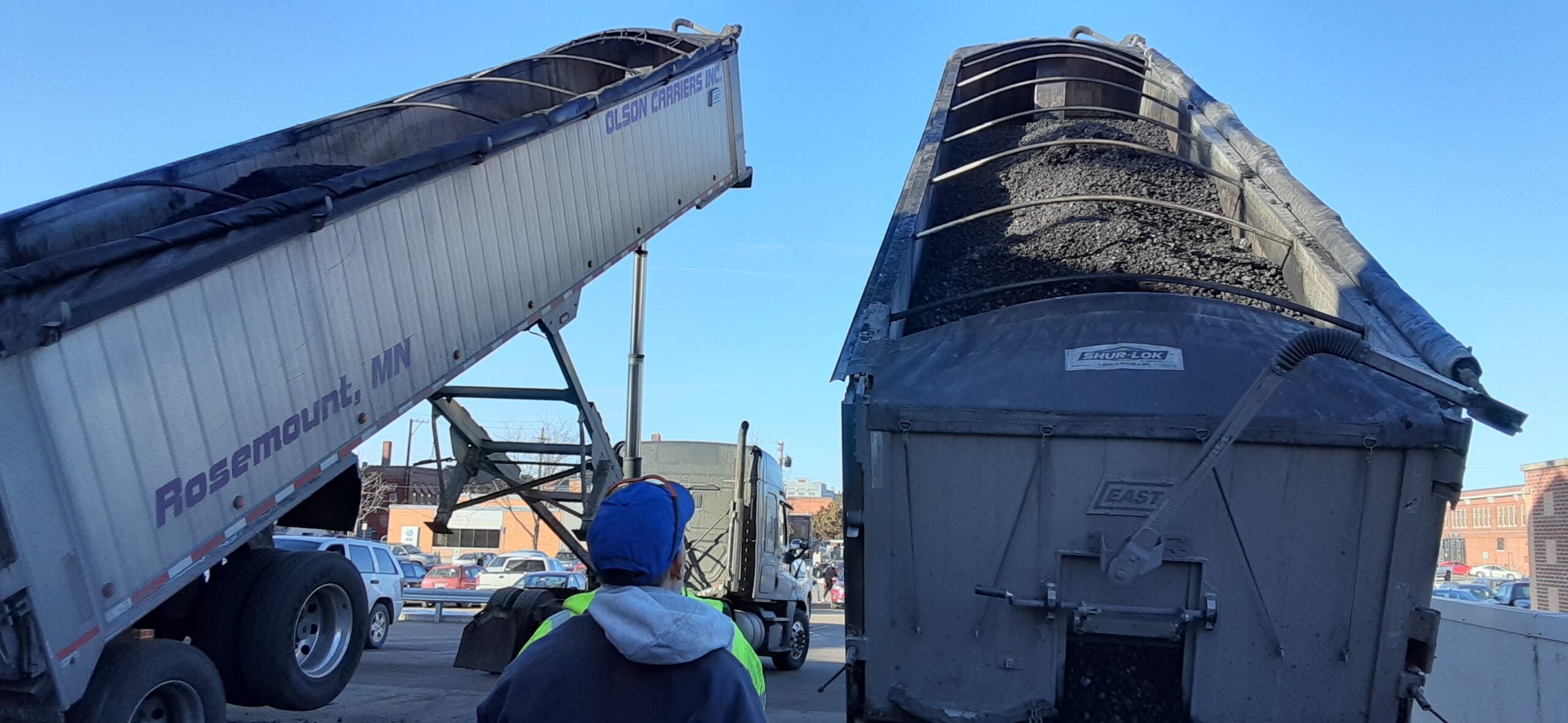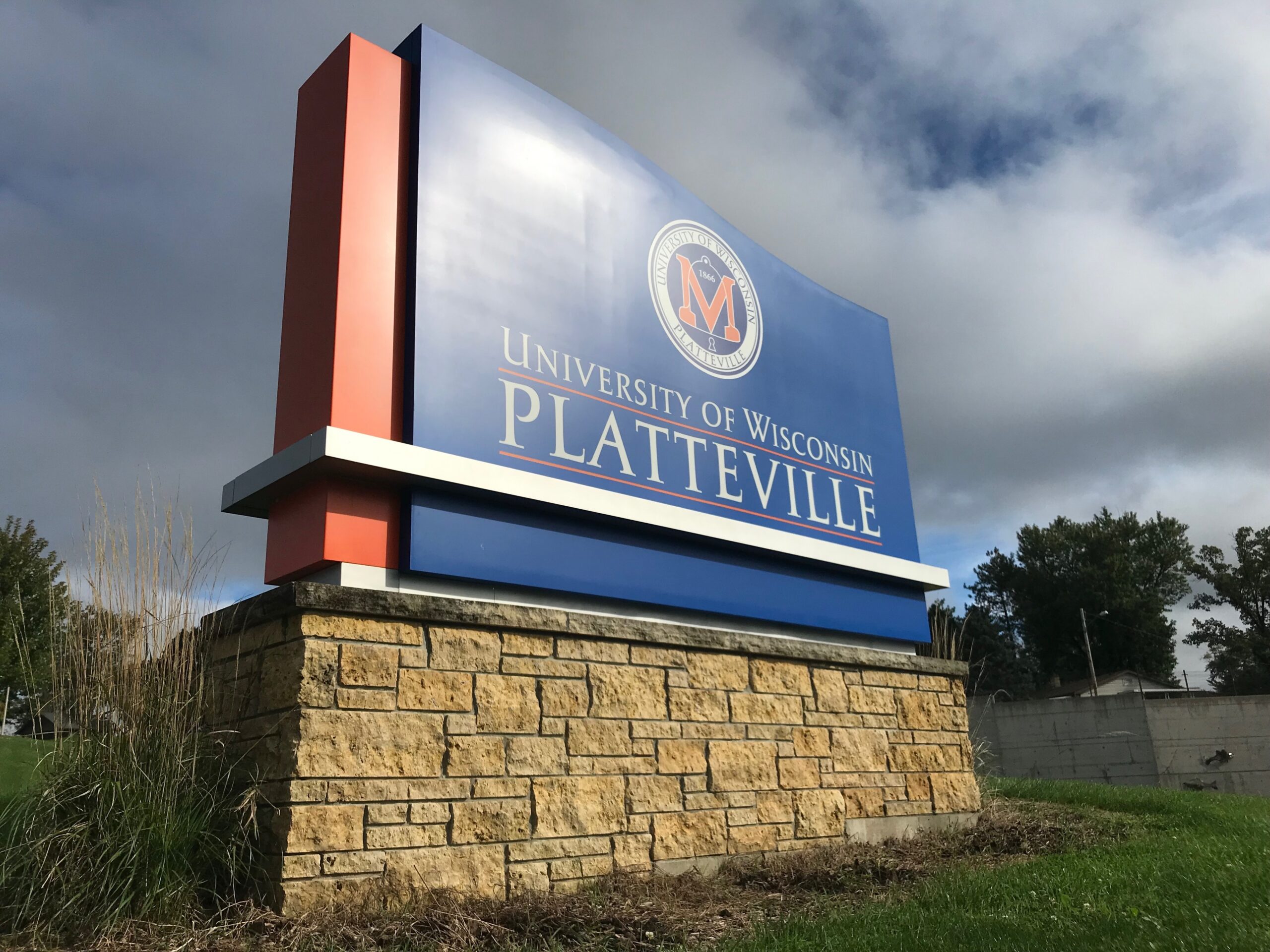Five campuses in the University of Wisconsin System using coal as a heat source will transition to a combination of natural gas and heating oil this year.
UW-Stout dumped its last load of coal into its central heating plant Wednesday.
“They actually scooped the last scoop in at 9 a.m. and by 3:20 p.m. it had burned and we switched to natural gas at that point,” said campus sustainability manager Sarah Rykal.
News with a little more humanity
WPR’s “Wisconsin Today” newsletter keeps you connected to the state you love without feeling overwhelmed. No paywall. No agenda. No corporate filter.
Rykal said UW-Stout had already scaled back its use of coal in recent years mainly using it during the coldest winter days. She said 10 year ago the campus burned 4,000 short tons of coal per year. In 2019, Rykal said they burned around 1,200 short tons.
“We are largely viewing natural gas as a bridge fuel to a renewable energy infrastructure,” said Rykal. “I think we have to see it that way. It’s sort of a stepping stone but not an end goal. It’s definitely progress for our campus, but we’re continuing to work on energy efficiency and renewable energy on campus.”
In June, the UW System will end its statewide contract to provide coal for campuses. In preparation, the UW System Board of Regents approved nearly $29 million in financial requests in 2018 from UW-Stout, UW-Oshkosh, UW-Platteville, UW-Stevens Point and UW-Superior to upgrade their remaining coal-fired boilers to run primarily on natural gas with a fuel oil backup.
UW-Platteville Sustainability Coordinator Amy Seeboth-Wilson said the campus will stop using coal at the end of March.
“And it turns out this conversion among our heat plant to switch away from coal is going to reduce our greenhouse gas emissions related to heat by approximately 20 percent,” said Seeboth-Wilson.
UW-Oshkosh will hold a ceremony celebrating the end of its ties with coal Thursday.
Sustainability officer Brad Spanbauer said UW-Oshkosh relies on a 50/50 split of natural gas and coal augmented with paper pellets annually. He said using all natural gas with fuel oil as a backup will be better for the environment and staff at the campus heating plant.
“But we need to think about our employees’ health too,” said Spanbauer. “And so the staff won’t be dealing with moving this coal around and working in close proximity to the coal and all of the ash and the dust. It is going to save them a tremendous amount of time, a tremendous amount of work.”
UW-Oshkosh heating plant superintendent Dan Biese said after burning coal for 40 years he and his staff are not going to miss it.
“Coal is labor intensive,” said Biese. “It’s got to be trucked in from Green Bay to Oshkosh. Then it goes into a coal bunker and then it has to be moved from the coal bunker to the boiler through a conveyor system and a bucket elevator.”
Biese said then coal ash needs to be removed from the boilers mixed with water and hauled to a nearby landfill. He said they’ll be able to run natural gas at half the cost of dealing with coal and save valuable staff time. When asked if that meant he’ll have to cut the size of his heating plant team Biese said it will not.
“The only thing that’s going to change is that we’re not going to have to bust our a– all winter,” said Biese.
Wisconsin Public Radio, © Copyright 2025, Board of Regents of the University of Wisconsin System and Wisconsin Educational Communications Board.







